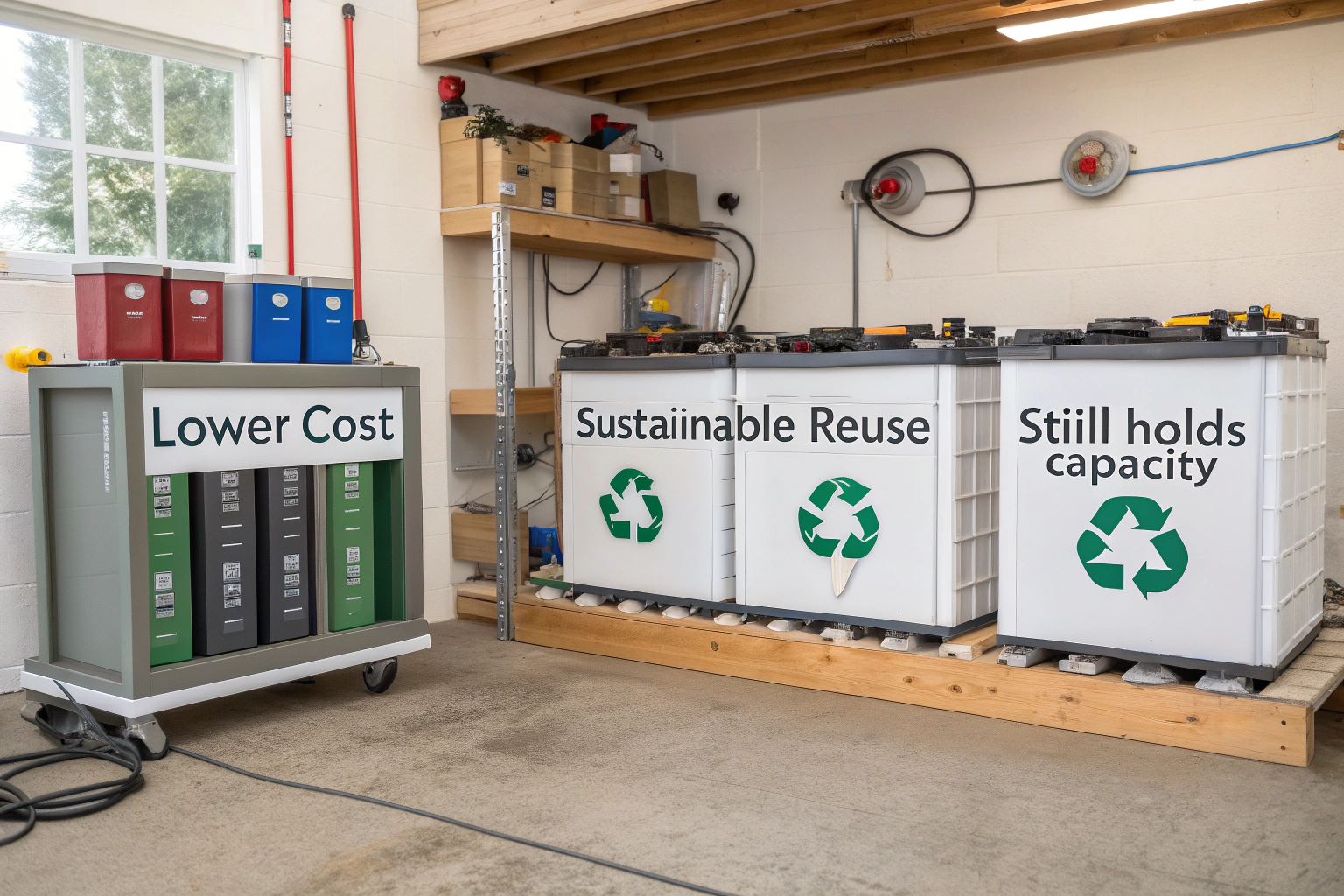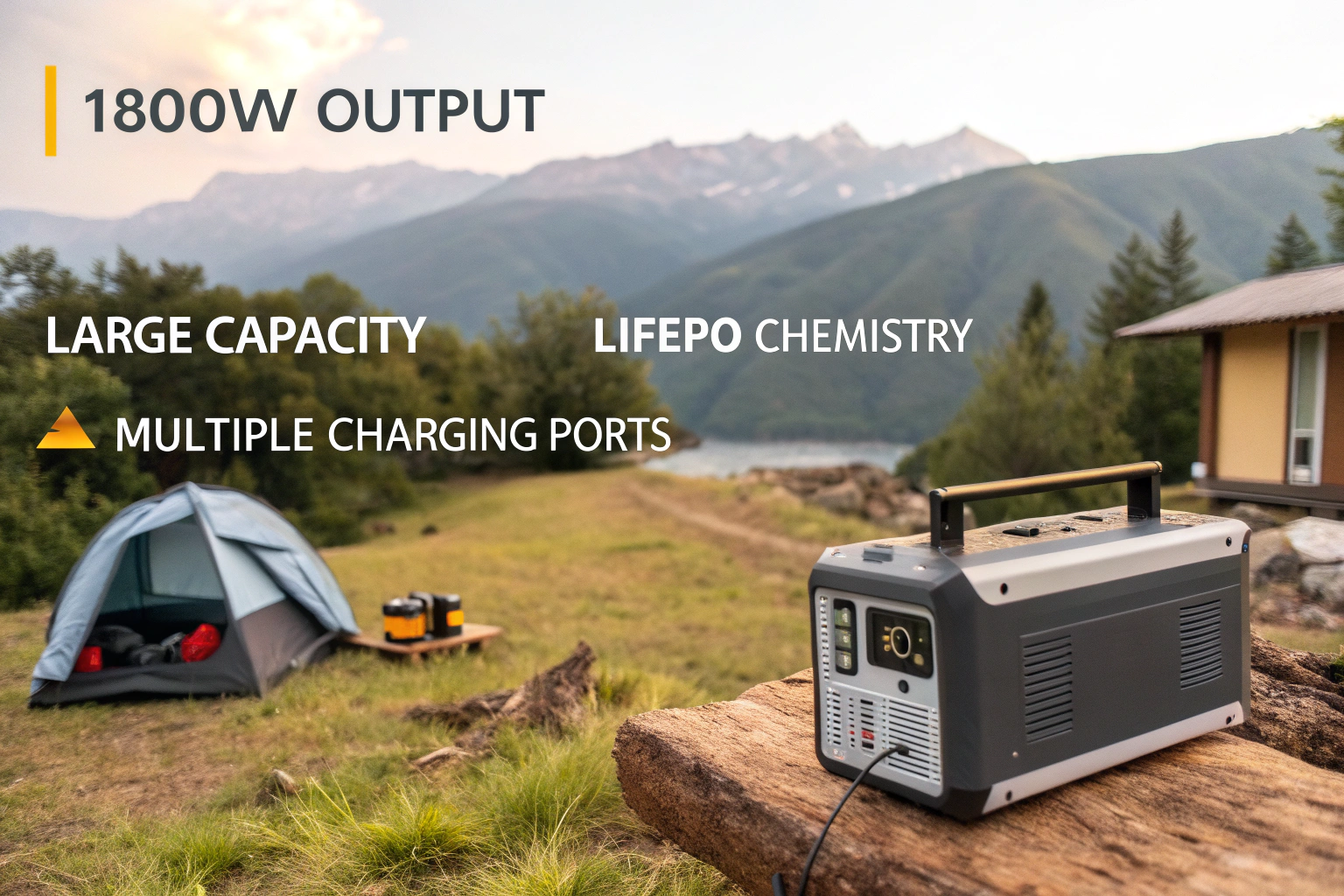
Solar panel energy efficiency determines how much sunlight is converted into usable electricity. This affects both the performance and the cost-effectiveness of your solar energy system.
Solar panel energy efficiency refers to the percentage of sunlight a panel converts into electricity. Higher efficiency means better performance, especially in smaller spaces.
Solar energy efficiency is often a key consideration when deciding which solar panels to install. In this article, we will dive into how solar panels work, what factors affect their efficiency, and why it matters for your home or business.
✔
Solar panel efficiency is a measure of how much sunlight a panel can convert into electricity. Higher efficiency means more power from less surface area.
✖
While higher efficiency panels tend to be more expensive, they can offer long-term savings due to better performance, especially in areas with limited space.
What is Solar Panel Efficiency?
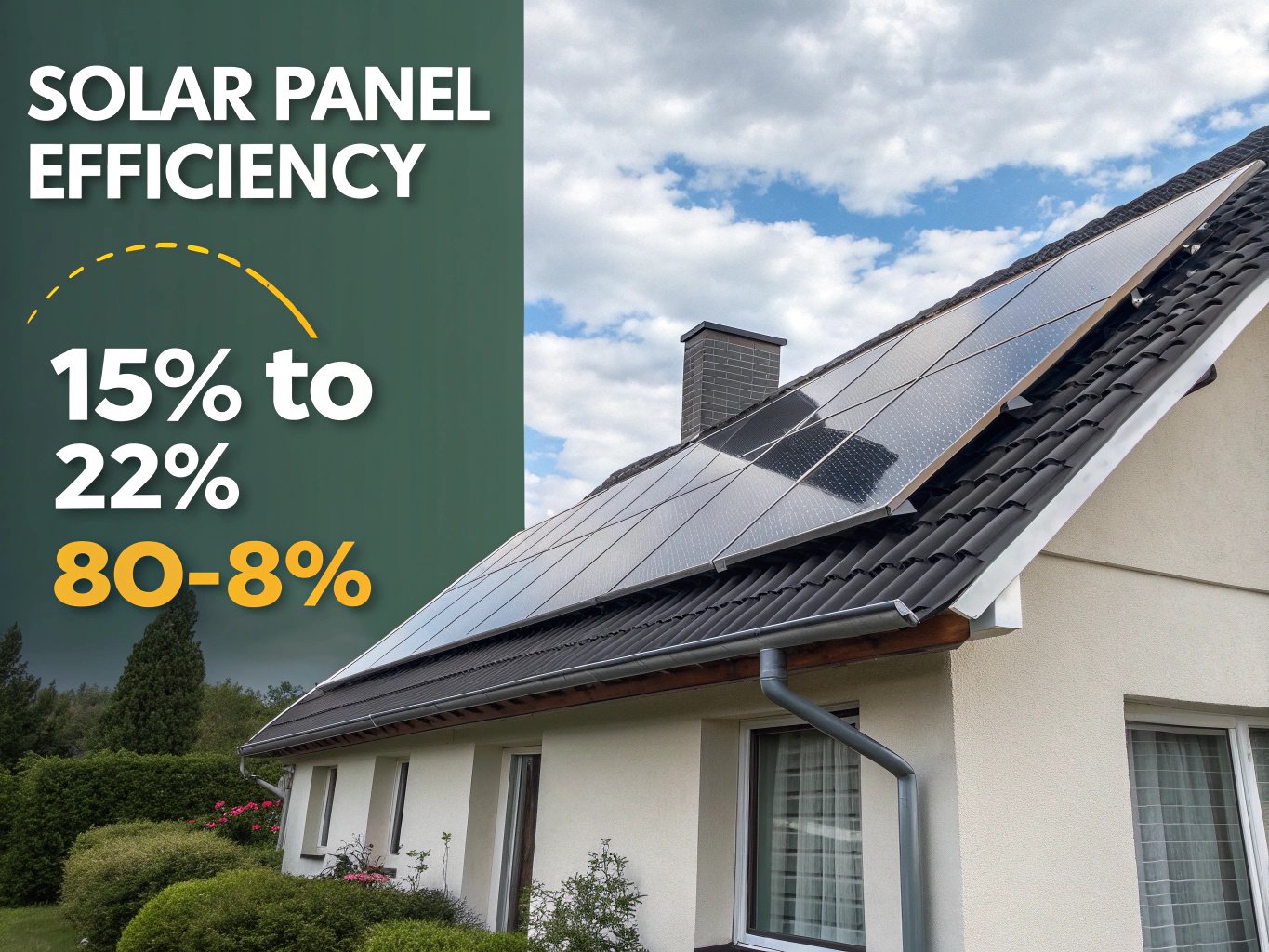
Solar panel efficiency refers to the ability of a solar panel to convert sunlight into usable electricity. This efficiency is usually expressed as a percentage, with typical solar panels falling between 15% and 22%. This means that only a portion of the sunlight hitting the solar panel is converted into electricity, with the rest being reflected, absorbed as heat, or lost in other ways.
For example, a panel with 20% efficiency means that 20% of the sunlight hitting the panel is turned into usable energy, while the remaining 80% is not converted. This efficiency is crucial for homeowners and businesses as it impacts the overall power output, the space needed for solar panels, and the cost-effectiveness of the system.
How is Solar Panel Efficiency Measured?
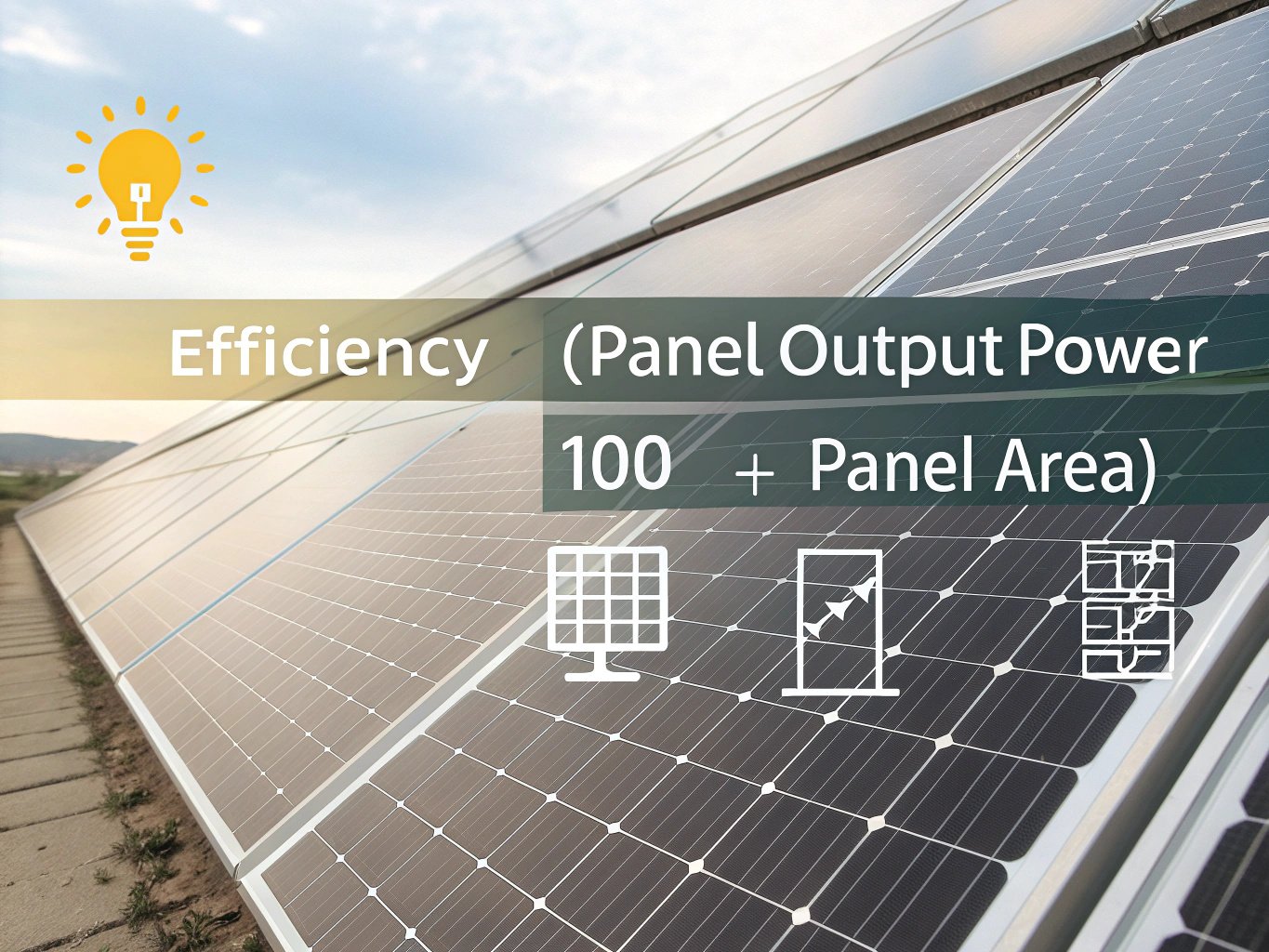
Solar panel efficiency is measured by the percentage of sunlight that can be converted into electricity under standard test conditions (STC). This includes optimal light intensity (1,000 watts per square meter), temperature (25°C or 77°F), and a clean, direct line of sight to the sun. Manufacturers use these standardized conditions to test and rate their panels.
The formula for calculating efficiency is as follows:
Efficiency = (Panel Output Power / Panel Area) × 100
For example, if a 300-watt panel has an area of 1.7 square meters, the efficiency is:
Efficiency = (300 watts / 1.7 m²) × 100 = 17.65%
What Affects Solar Panel Efficiency?
Several factors can affect solar panel efficiency, including:
- Material: The type of material used in solar cells, such as monocrystalline, polycrystalline, or thin-film, influences efficiency. Monocrystalline panels are the most efficient due to their high-quality silicon.
- Temperature: High temperatures can reduce the efficiency of solar panels. Panels tend to operate less efficiently as they heat up during the day.
- Light Conditions: Cloudy weather, pollution, and dirt on panels can reduce the amount of sunlight that reaches the solar cells, impacting efficiency.
- Panel Age: As solar panels age, their efficiency tends to degrade by about 0.5% per year. Older panels may produce less power than they did when first installed.
How to Choose the Right Solar Panels for Efficiency?
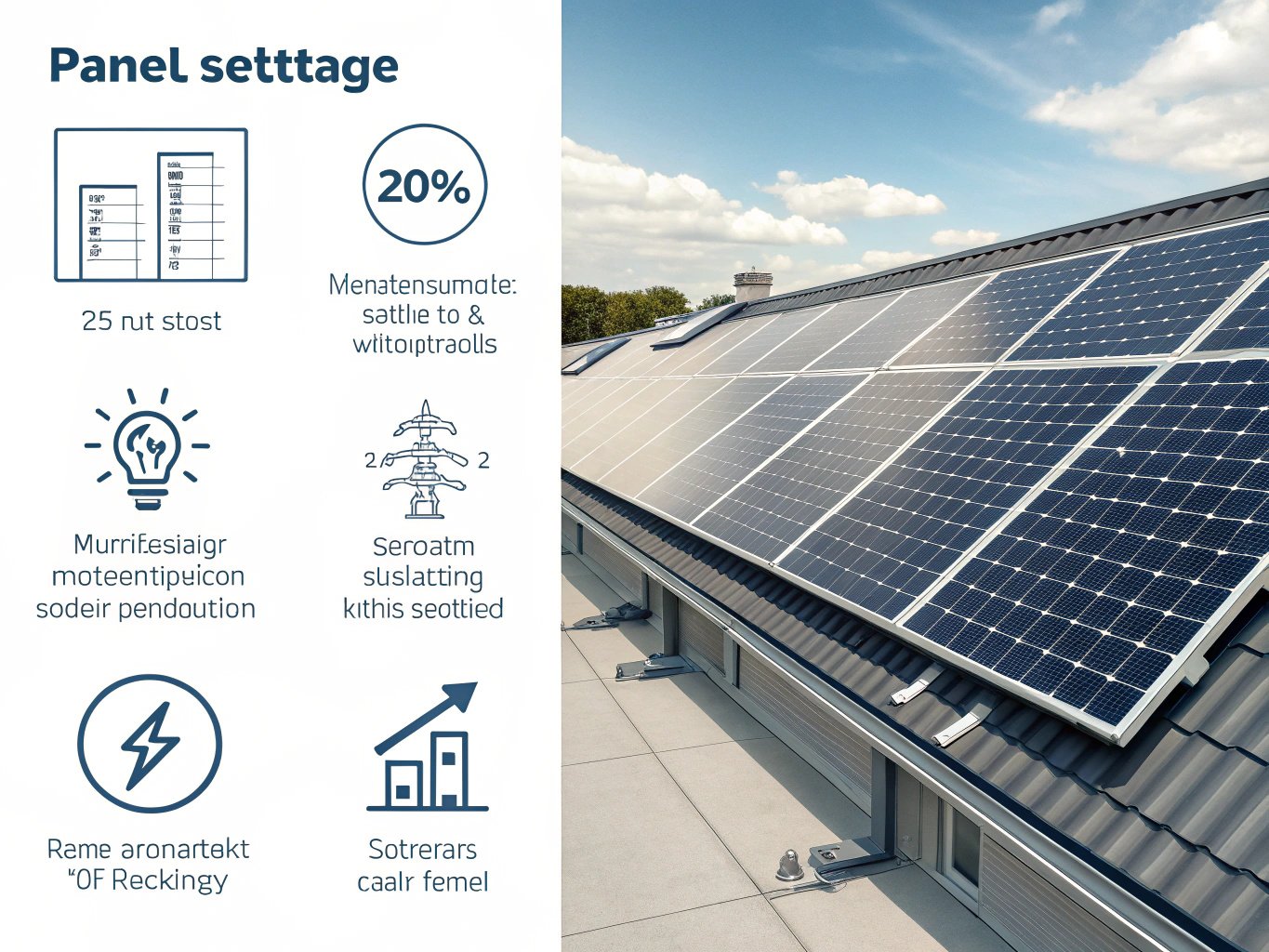
When selecting solar panels for efficiency, there are several key factors to consider:
- Panel Type: Monocrystalline panels offer the highest efficiency, typically around 18% to 22%. These panels are made from a single crystal structure, making them more efficient at converting sunlight into energy. If space is limited, monocrystalline panels are usually the best choice.
- Power Output: The higher the wattage, the more electricity the panel can produce. While efficiency is a good indicator of performance, the total wattage is also crucial for determining how much energy a panel can generate.
- Manufacturer Reputation: Trustworthy manufacturers with a history of producing high-quality panels will ensure the panels maintain high efficiency for longer periods of time.
- Cost vs. Efficiency: While high-efficiency panels tend to be more expensive, they may offer better long-term value due to their higher power output and longer lifespan.
Advantages and Disadvantages of High-Efficiency Solar Panels
Advantages:
- More Power in Less Space: High-efficiency panels are ideal for rooftops with limited space.
- Better Performance in Low Light: These panels can perform better than lower-efficiency models in partially shaded areas or cloudy conditions.
- Longer Lifespan: High-efficiency panels typically degrade slower over time.
Disadvantages:
- Higher Initial Cost: The upfront cost of high-efficiency panels is typically higher.
- Diminished Returns in Large Spaces: If you have plenty of roof space, installing high-efficiency panels may not provide a good return on investment.
Conclusion: Is Solar Panel Efficiency Really That Important?
In conclusion, solar panel efficiency plays a significant role in the overall performance of your solar system. Higher efficiency panels produce more power in less space, making them ideal for homes with limited roof space. However, efficiency is not the only factor to consider when choosing solar panels. Cost, durability, and overall performance in your specific location should also influence your decision. Ultimately, the best solar panels for your home or business will depend on your unique needs and circumstances.

